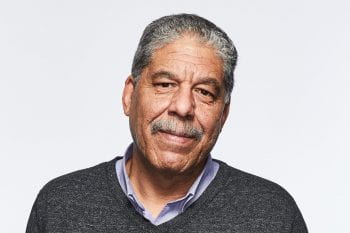For almost six months now we have all been dealing with a threat that we didn’t see coming in the COVID pandemic. During this time, we have had to significantly restrict many of the activities that are common to human connection. We can’t hug each other, shake hands, gather, or go out with friends and family as we did prior to this. This is a huge loss as we are basically social animals and yearn for the camaraderie and fellowship of connecting with each other.
As the leader of a community mental health center serving a population that is more than 60% African American, and as a Black man who has spent a lifetime advocating and fighting for social justice, I am angry, incensed, saddened and honestly, at this point in my life, just a bit depressed. Over the past several months we have born witness to or heard about the executions of Ahmaud Arbery, Breonna Taylor, George Floyd and the hysterical call of Amy Cooper, a white woman in New York’s Central Park to law enforcement because she feared for her life because a Black man requested that she leash her dog.
African Americans in this country have faced a predominant history of slavery, indentured servitude, Jim Crow, legalized barriers to democratic participation, legal segregation and inequality, and discriminatory housing laws/policies (which have had the most lasting economic impact). As a result, there have fundamentally been two distinctly unjustifiable sets of rules, opportunities, threats, and experiences that have been constant and continue today: one set for white people, and one for Black people and people of color. We must focus our efforts to make fundamental change on the institutional and structural components that will need radical transformation to make any real difference.
Once again, the country and our community are experiencing another “flashpoint” resulting in an explosion of embers of injustice that have been simmering below the surface and along with the anger, frustration, disappointment and grief, we are also either consciously or unconsciously experiencing individual and collective trauma. Overlaying this is a pandemic that has taken a disproportionate toll on people of color. For these reasons, I believe that how we communicate, respond and experience each other should be informed by the principles of trauma-informed care, particularly during this time. Healthy responses to trauma experienced by individuals and communities focus on enhancing Safety and creating greater opportunities for Choice, Empowerment, Trust and Collaboration and how those are manifested in our personal behavior and decisions, but also how we begin to intentionally embed these principles in the policies, laws, values and behavior of our institutions and systems.
We need to understand that we all have an increased vulnerability regarding emotional well-being during a challenging time as we are experiencing now. It is extremely important that we attempt to be aware of our emotions while also being attentive to those around us as we attempt to help others navigate through this.
Let’s communicate, but more importantly, listen to each other and allow for sharing of thoughts and emotions without judgment. Most important, let’s work hard to see the dignity and humanity in each other with a keen understanding of our interdependence regardless of our mutual vulnerabilities, missteps and imperfectness.
Joe Yancey
CEO, Places for People

Joseph Yancey serves as the CEO of Places for People, the only federally Certified Community Behavioral Health Organization in St. Louis City and County. A community leader serving on numerous boards and commissions at the local and state level, Yancey guided Places for People through a historic merger with Community Alternatives in 2011. Since the merger, Places for People has more than doubled its budget, people served, employee and evidence-based, integrated physical/behavioral health services across the lifespan.
Yancey has over 40 years of experience in behavioral health and has held leadership positions with many behavioral health care organizations, including the Missouri Department of Mental Health, where he served as Assistant Regional Manager for the Eastern Region and Deputy Director of the Division of Comprehensive Psychiatric Services. Yancey holds a master’s degree in Public Policy Administration, is a graduate of Leadership St. Louis (2000) and has received numerous awards including the Silver Key award from Mental Health America in 2016. He is the father of six and grandfather of five.